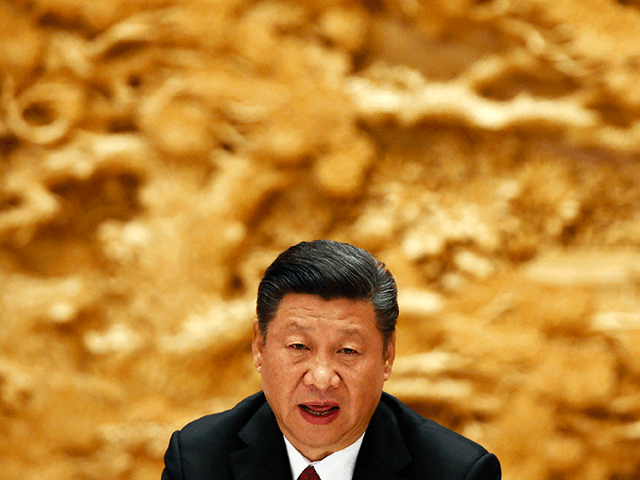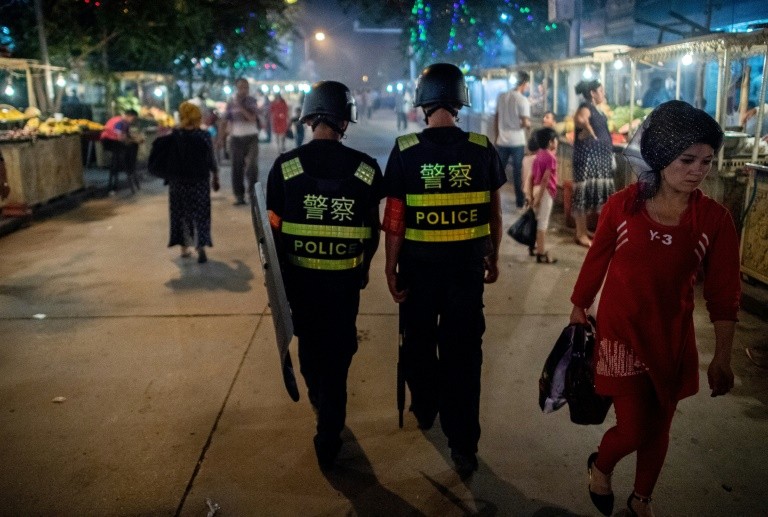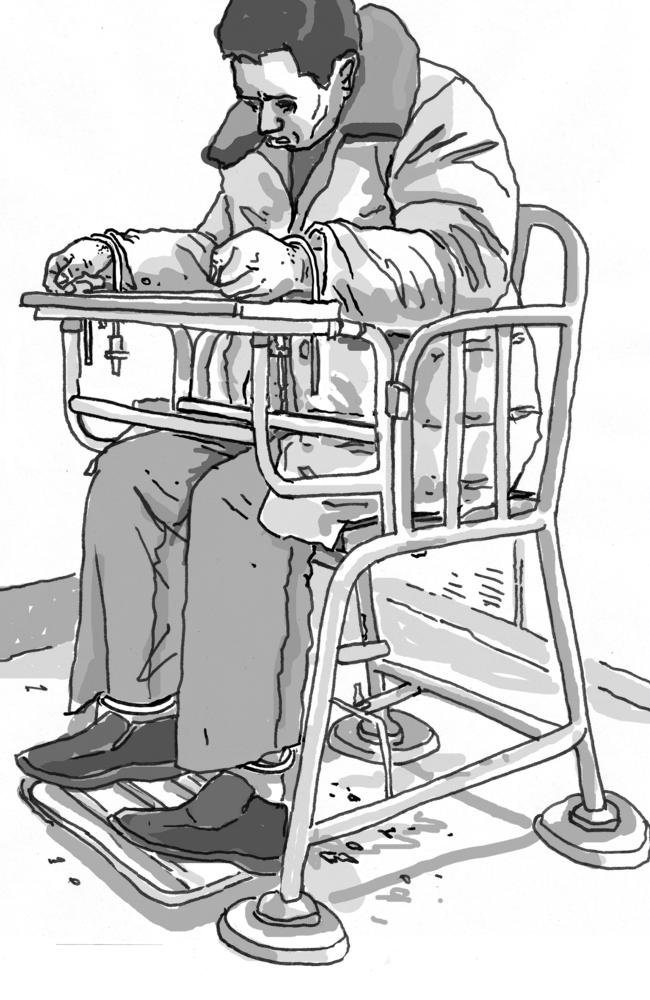Human rights organization Safeguard Defenders said Tuesday that China is holding thousands of prisoners in secret prisons, including political dissidents and human rights activists, and using physical and psychological torture to force them to sign confessions.
Safeguard Defenders published a report in June on these practices titled Locked Up: Inside China’s Secret RSDL Jails. Tuesday marked the first publication of the report in Chinese.
RDSL stands for Residential Surveillance at a Designated Location. Safeguard Defenders calls it a “system of state-sanctioned kidnapping” and a “legalized form of black jail” enforced with “virtually no judicial oversight.”
According to Locked Up, the RDSL system was created in 2013, the same year Xi Jinping became the president of China. Victims are grabbed by a swarm of Chinese security officers who strike without warning, usually very late at night, although broad daylight kidnappings were also documented. Most victims said they were violently subdued without warning and never given a chance to come quietly.

Chinese President Xi Jinping attends a summit at the Belt and Road Forum on May 15, 2017 in Beijing, China. (Photo by Thomas Peter/Getty Images)
The targets are not always shown any credentials, warrants, or paperwork during their arrest, but the security officers make a point of filming the arrest in great detail, usually with more than one camera.
The bound and hooded abductee is sometimes processed at a local police station for a few days, but often they are whisked straight to an RDSL black site, which could be anything from a purpose-built black-hole prison to a repurposed military facility or apartment building.
Detainees are kept hooded throughout transport so they cannot identify where they are being held. Sometimes their families are not informed they were arrested, and when non-Chinese citizens are grabbed, their national embassies are not always notified. Among the foreigners subjected to RDSL were Michael Kovrig and Michael Spavor, the Canadians held hostage by China to secure the release of Huawei executive and Communist Party leader Meng Wanzhou.

Police patrol a night food market near the Id Kah Mosque in Kashgar, in China’s Xinjiang Uighur Autonomous Region, one day before the Eid al-Fitr holiday in June 2017. (AFP/Johannes EISELE)
One thing the RDSL facilities all have in common is extensive surveillance, both human and electronic. The victims are not allowed to communicate with the outside world. The facilities are also carefully designed to make suicide difficult for the tormented captives.
The RDSL survivors interviewed by Safeguard Defenders reported being subjected to appalling and internationally illegal torture by Chinese security officers, much of it strongly reminiscent of the accounts given by Uyghurs held in the concentration camps of Xinjiang province – including extensive use of the “tiger chair,” a metal apparatus that forces prisoners to hold agonizing positions for extended periods of time.

Days in the notorious ‘tiger chair’ causes swollen legs and buttocks. Picture: Russell Christian/Human Rights Watch
One of the prisoners interviewed for the report, human rights lawyer Chang Weiping, said he was strapped into a tiger chair for six days straight while being denied food and sleep.
“Life in RSDL is defined by isolation, boredom and fear. Your only company will be the two guards assigned to watch you 24 hours a day (even when you go to the toilet) and, when they come, your interrogators,” Locked Up explained.
Other torments described by RDSL survivors include forced ingestion of dubious “medications,” denial of access to real medicine even for those with serious illness, painful beatings administered in a way that leaves no visible marks, sexual humiliation of female prisoners, constant threats against both prisoners and their families, and endless “interrogations.”
Survivors agreed the top priority of RDSL is to pressure prisoners into signing confessions. Many were forced to write numerous drafts of confessions until they produced one that satisfied their captors. Outgoing prisoners are also forced to sign pledges that they will not discuss what was done to them in RDSL, give interviews to the media, or lodge complaints with foreign governments.
Prisoners are often granted “Non-Release Release,” which means they are kept under house arrest or very heavy surveillance, including menacing official harassment and limits on their travel.
According to Locked Up, over 57,000 people have been subjected to RDSL since 2013, and the system tends to be even worse in practice than it looks on paper.
“They give the police huge powers to detain people in secret facilities and cut them off from any contact with the outside world, and don’t tell anyone where they are. It’s the same as disappearing,” Safeguard Defenders researcher Chen Yanting told Radio Free Asia (RFA) Tuesday.
“The stipulated limit to such detentions is six months, but actually we have records of some cases where it lasted as long as four years,” Chen said.
Safeguard Defenders urged the international community to take stronger action against RDSL as a blatant violation of human rights by the Chinese government.
The United Nations human rights commission expressed “grave concern” about the practice in March 2020, citing several cases of human rights activists held at black sites for merely attending an informal gathering.
“It has also unfortunately become common practice for Chinese authorities to provide limited or conflicting information on the victims and the charges they face. The families are often kept in the dark about the well-being of their loved ones,” the U.N. Office for the High Commissioner on Human Rights said.
In December 2020, U.N. special rapporteur for human rights Mary Lawlor said she was “shocked” by China’s use of RDSL against human rights activists and their lawyers, citing the above-mentioned Chang Weiping as an example.
Lawlor noted that the threat of RDSL was enough to intimidate lawyers away from representing political dissidents, fearing they too would be swept away to hidden prisons with black bags over their heads. “The profession of human rights lawyer has been effectively criminalized in China,” she said.
The U.N. said in March 2020 its experts were holding a “dialogue” with Chinese officials on RDSL and would “closely monitor the situation,” but according to Safeguard Defenders, the abuses have continued.

COMMENTS
Please let us know if you're having issues with commenting.